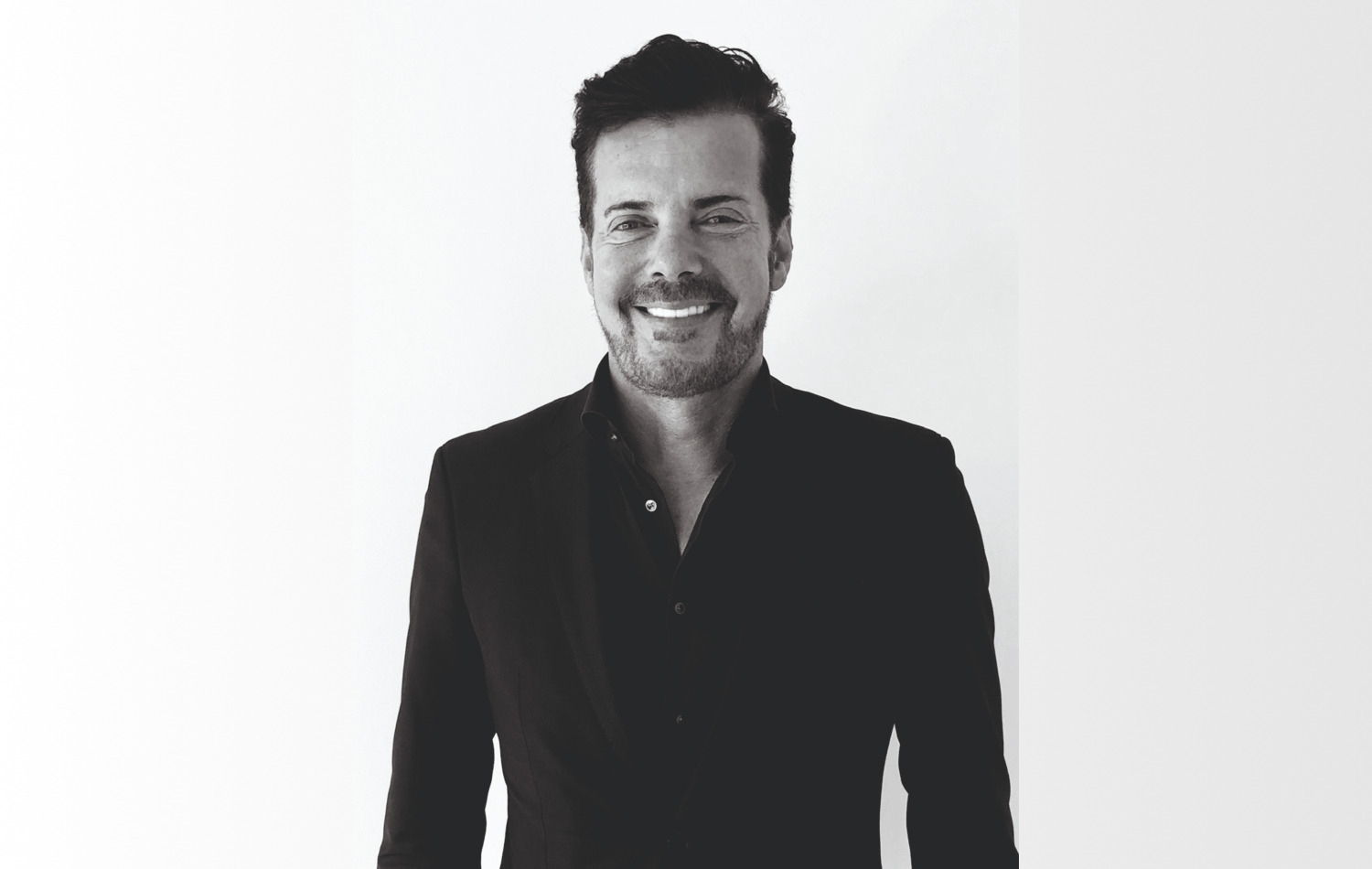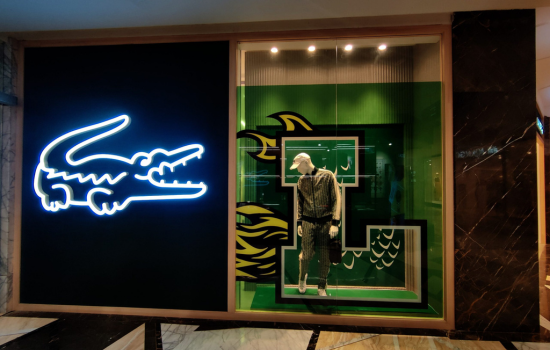Marcus Meyer took charge as Chief Executive Officer – Asia Pacific, Lacoste speaks about the brand’s plans for India including potentially sourcing from the country to sell across the world
New Delhi: French casualwear giant Lacoste has had a measured approach in India; it opened only about 40 stores in three decades of its presence in the South Asian country. Now, Lacoste aims to be a bit more aggressive with plans to open about 50 standalone stores in the country in the next five years.
In June this year, Marcus Meyer took charge as Chief Executive Officer – Asia Pacific, Lacoste moving to Hong Kong, the APAC headquarters of the brand. Prior to his current assignment, Meyer who has been with Lacoste for more than four years, served as the Chief Executive Officer (CEO) for the Central and Northern European Region.
On his first visit to India, Meyer spoke to IndiaRetailing about the attractiveness of India as a market for the French company. Edited excerpts:

Is it your first visit to India as APAC CEO?
Yes, I wanted to meet our partners here. We have good relations with Rajesh Jain, the CEO of Sports and Leisure Apparel Limited, our partner in India.
For me, India is one of the fastest emerging and interesting markets. We have 53 points-of-sale including 7 digital marketplaces already in India. The points-of-sale include our boutiques along with premium online marketplaces.
We did a market visit in Bengaluru and also had discussions about our development plans for the next 5 years.
When in Bengaluru you would have visited some malls. What is your assessment of the India market?
I like to see every market individually and try to understand first the base of the markets such as the economic and the buying power situation. When we talk about India, it is one of the biggest countries and one of the fastest-growing economies in the world, and especially in the digital part, I think India is one of the most developed countries, globally. We see a strong growth of buying power especially in the digital and IT category.
For me, India is among the top three markets with most potential for future growth. Our brand is also constantly developing. Lacoste is the inventor of the Polo shirt and we are celebrating the 90-year anniversary of the brand and of the Polo. But Lacoste is also much more than only the Polo business. We have a strong footwear and leather goods business, and we are evaluating together how we can take this potential further in the market to grow in other categories also apart from textile.
Which other markets excite you?
We are developing well in Indonesia. Australia is also a good market. Then there is China, US, and of course, France, which has the roots of Lacoste and still one of the biggest markets for us. I would still name India as one of the top three in the world based on the growth rate that we’re receiving.
What is your expansion plan?
We have quite a strong growth plan for the next five years. We think that we can nearly come to doubling the number of stores, but we want to grow sustainably and wisely, and don’t want to overstretch.
Sometimes, we also see potential where it’s possible to enlarge the area of an existing boutique. When we started, there was mainly the textile business, but now we have footwear, leather goods, underwear, and womenswear.
We are also looking at the size of the stores and wherever possible, we’re working on extensions. At the moment, we are in 17 cities in India and the target that we defined together with our partner is to go to approximately 29-30 cities in India.
You mentioned about the size of the store. What is the current average size, and what is size you are planning to have?
On an average, we are slightly above 100 square meters. The ideal target is to have around 140-150 square meters. However, sometimes, the depth depends upon the opportunities we get. There’s always a wish list, like we see some locations and say that we could also go for 150 or 160 square meters, but many times, the locations are covered by other tenants in the mall. That’s why it’s also important that we have a strong partner in the market that understands where the opportunities are and catch the right opportunities.

Speaking of partners, any plan to convert your current distribution partnership into a joint venture or come on your own?
No, there’s definitely no plan to come on our own. We are on a good level with our existing partner. I’m a big fan of strong partnerships and strong alliances with people, who know the business and know the market. That’s why we continue with what we have. Maybe someday we might do a joint venture to invest together.
What is the growth here compared to other countries?
It’s a growth potential, let’s say, of the fashion category. There are some analyses from serious institutions where they are talking about growth from $690 billion in 2022 to $2 trillion by 2032. Of course, these are data and analysis in theory, but there’s always a certain truth to that. If it’s $2 trillion or even $1.6 trillion, it definitely shows us a tremendous growth potential in the market. And with the growth of the buying power and rising disposable income of the consumers, driven mainly by this digital and IT part, I see a huge potential for us as a brand.
We are fashionable and trendy, and we’re approaching the Gen Zs and the young generation with our products. At the same time, we also have our traditional consumers. That’s why we see great potential.
You extended into footwear and other categories. Are there more category or brand extensions?
Some categories are currently quite tiny because we just launched them. Leather goods is a decent business, but we see a big growth potential in leather goods and accessories, especially for women because they like products like handbags and it’s kind of a fashion statement.
India is a market that is strong with traditional dressing. At the same time, there are items which go with traditional dresses, like a nice handbag or sunglasses. This is something we are working on.
So, would you also look at opening standalone stores for women?
It’s a bit too early because we still have to develop the category further in terms of product portfolio and width of the offerings. At the moment, we have other pilot projects. For example, in Korea, which is a developed market from us, we are piloting a sport concept store, with golf and tennis as that is our heritage.
Rene Lacoste was a famous tennis player; he was also an inventor of some technical products. We have brand ambassadors like Novak Djokovic and Medvedev, who are well-known global ambassadors for the sport. The pilot is running successfully.
There are a few stores that we’re testing currently, and this might be something that we roll out since India is a sports-driven market. At the moment, we’d focus on where we are good to develop Lacoste routine stores, and if we can expose the offerings in potentially bigger locations.
Rajesh and his team are also working on constantly developing the stores further, installing new developments, digitalization and connecting the stations.
How are you trying to tackle the challenge of counterfeit products?
We get copied because we are a strong brand, so one can see it as a compliment to the brand. The negative aspect is that they sell products with our logo and our brand name but don’t meet the expectations in terms of quality and product approach.
It’s not an easy topic; we are trying to go against it whenever possible. But if you close one door, two others will open.
Is there any plan to source from India to make your products more competitive and increase margins?
Definitely. That’s also a reason why I’m here. Our global sourcing team also visited India to explore the market. We had good meetings and we definitely have this on our roadmap to see India not only as production for the local market, but also in the future as an important production country for exports.
What kind of marketing campaigns are you planning in India?
A lot of it is digital. The modern way of communication is digital and the biggest reach and coverage in the country is through digital. We are also investigating brand ambassadors from different fields, although it’s still in an early stage.
Do you have a different merchandise strategy for India or same as other parts of Asia?
It is similar to other Asian, European countries. We are also open to developing products specific to market needs. Like capsules that are probably sold in India, or even if potentially needed in another country. There are no borders, no limits. It has to match with the brand image of Lacoste, of course.
But I see opportunities there. We are already there in mature markets like Korea or Japan and are developing capsules for the market. We are approaching the Indian market in the same way.
So, are you planning India specific products?
Yes, we are open to discussing and talking also about the products that have a strong demand in the Indian market.
How are you doing online?
Apart from our digital flagship, we are currently working with six online marketplaces, and have the potential to be on 8-10 marketplaces. But it’s not a question of number of marketplaces; It’s important to identify the right ones that have the potential to grow with us and also have the fashion competence…marketplaces that can really communicate fashion. Then there are probably others that are more commercial, where we sell commercial products like underwear, t-shirts and other categories.



